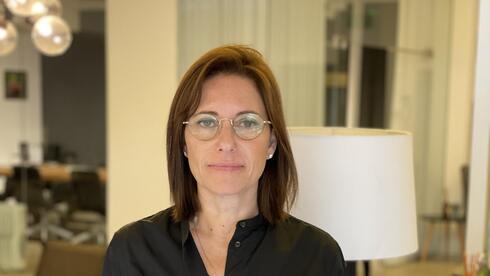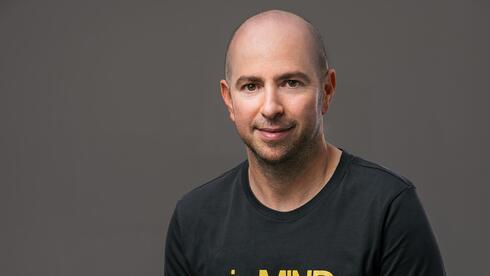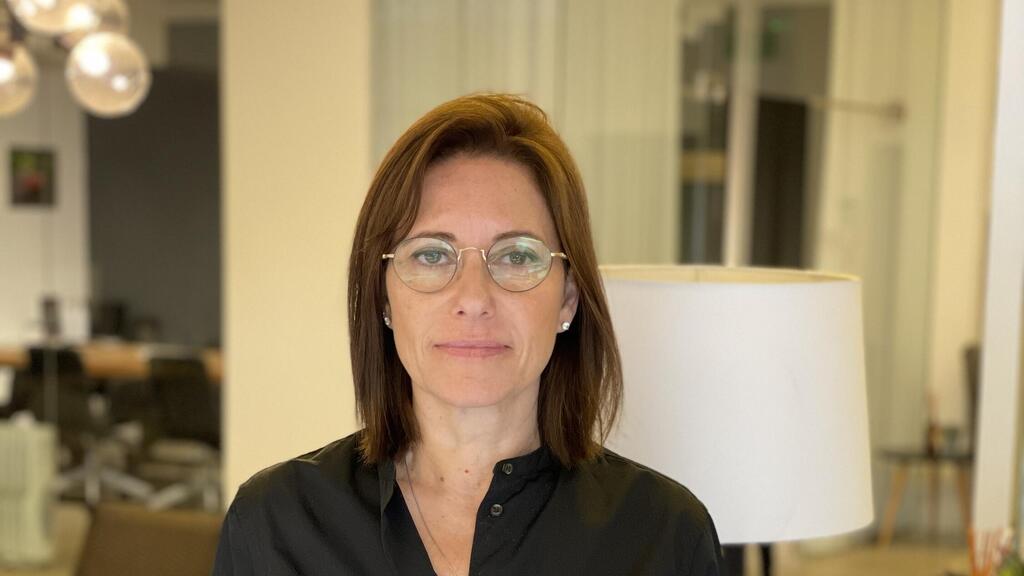
2025 VC Survey
2025 is bringing “a search for meaning” among Israelis, inspiring entrepreneurial dreams
Yodfat Harel Buchris, Managing Director at Blumberg Capital, made the observations as part of CTech’s 2025 VC Survey.
“In 2025, I wishfully hope that the war will end, and all our hostages will return home safely. Israeli high-tech will face significant challenges, including rehabilitation, talent retention amidst political tensions, and staying competitive in global markets, ensuring we continue to drive the ‘AI train’,” said Yodfat Harel Buchris, Managing Director at Blumberg Capital.
Buchris made the remarks as part of CTech’s 2025 VC Survey, where prominent investors are invited to share their thoughts and feelings about the year ahead. As we settle into 2025, Buchris highlighted technologies and sentiments felt among Israelis that may shape the next few months.
“However, we also see immense opportunities in innovative AI applications and infrastructure, cybersecurity and defensetech, and deep tech disruptive technologies such as quantum technologies. Additionally, there is a noticeable ‘search for meaning’ among Israelis, inspiring many to pursue their entrepreneurial dreams,” she added.
Fund ID
Name of fund/funds: Blumberg Capital I-V
Total sum of the fund: $860M
Partners: David Blumberg, and senior leadership: Bruce Taragin, Yodfat Harel Buchris, Steve Gillan)
Notable/select portfolio companies (active): BioCatch, Yotpo, FundGuard, Hunters, Theator
Notable exits: DoubleVerify, Braze, Nutanix, Finaro
2024 is over. How can you summarize it in terms of the Israeli high-tech industry?
2024 was a year of recalibration for Israeli high-tech. In the wake of the global economic downturn of recent years, we saw a strong focus on sustainable growth and capital efficiency. The Israeli startup ecosystem demonstrated breathtaking resilience despite the war, global geopolitical uncertainty, and a tightening funding environment.
I deeply respect and salute those who served in the reserves during turbulent times, as well as those who stayed at the homefront and stepped up to ensure ‘business as usual’ could continue as much as possible, while being concerned for their loved ones. Together, they exemplified the adaptability and determination that define our industry and nation, and our colleagues across the ocean recognize that.
Looking ahead to 2025 - What challenges and opportunities await the Israeli high-tech sector in the coming year, and how are you, as investors, preparing for them?
In 2025, I wishfully hope that the war will end, and all our hostages will return home safely. Israeli high-tech will face significant challenges, including rehabilitation, talent retention amidst political tensions, and staying competitive in global markets, ensuring we continue to drive the ‘AI train’.
However, we also see immense opportunities in innovative AI applications and infrastructure, cybersecurity and defensetech, and deep tech disruptive technologies such as quantum technologies. Additionally, there is a noticeable ‘search for meaning’ among Israelis, inspiring many to pursue their entrepreneurial dreams.
As investors, we are committed to nurturing and supporting our portfolio companies during these turbulent times, backing new early-stage teams, and actively participating in non-profit initiatives to contribute to the broader ecosystem.
How will new American leadership affect the global high-tech industry or economy? And where does this place Israel and its entrepreneurs?
New American leadership may bring changes in trade policies, taxation, and innovation incentives, which could impact the global tech landscape. For Israel, known for its close ties to the U.S., this could mean both opportunities and challenges, depending on our leadership’s ability to maintain and foster the relationship. As always, we encourage Israeli founders to seek the right partners overseas, preferably those with an established history of working with Israel, who understand the local dynamics and remain confident in their support.
What are the three most important things the Israeli government should do today to accelerate the high-tech engine in the coming year?
- Strengthen academia-industry collaboration: At Blumberg Capital, it is a priority to help strengthen the connection between academia in Israel and the high-tech industry. The government should increase incentives for partnerships between academia and industry, such as funding joint R&D projects, encouraging commercialization of academic research, and fostering internship programs to equip students with practical skills. This will ensure a steady pipeline of talent and cutting-edge innovation for the high-tech sector.
- Enhance Israel's global image: In 2024, we've seen a drastic decline in foreign investments amidst the war and political uncertainty. Israel's high-tech industry thrives on international collaboration and investment. The government should focus on improving our global image and promote Israel as a hub of innovation and resilience through targeted awareness campaigns and global events.
- Expand R&D grants and tax benefits for startups: Continue the important work of the Israel Innovation Authority, and increase government support for early-stage companies through grants, tax breaks, and access to funding, encouraging innovation and helping startups weather economic challenges.
Are there new sectors you see as relevant? Are there any fields you anticipate will weaken significantly in the coming year?
Generative AI continues to be a catalyst for transformative innovation. Its success relies heavily on a robust supporting environment, including high-quality datasets, scalable infrastructure, and advancements in computational efficiency. Companies addressing these areas are poised for growth alongside generative AI vertical applications.
Defense technology emerges as a new hot domain, especially in Israel, where our expertise, skilled talent, and cohesive ecosystem facilitate swift validation and proof-of-concept processes. We are particularly enthusiastic about advancements in areas such as autonomous systems, cybersecurity, and AI-powered intelligence. Additionally, we see significant potential for companies exploring dual-use applications and expanding into new business lines.
Is Israel missing out on the AI revolution in the global arms race? If not, what should the local industry focus on to join the global race?
While we're not a significant player within foundation models (aside from our courageous AI21 Labs), Israel is not missing out on the AI revolution but needs to ensure it stays on pace. The local industry should not invest vast amounts of capital and talent in attempting to compete in the crowded foundation models race. Israeli founders should focus on leveraging AI for verticals like legal, financial services, healthcare, and defense, and also focus on the development of AI data infrastructure solutions to support and scale AI applications. Additionally, fostering collaboration between academia and startups to accelerate innovation is critical.
Could the global IPO drought end in the coming year?
There are early signs that the IPO market could thaw in late 2025, driven by improved macroeconomic conditions and pent-up demand. However, the recovery will likely be gradual, favoring high-growth, profitable companies over speculative ventures. As the bar for IPOs becomes exceptionally high, M&A outcomes are more likely, especially taking into account the new U.S. government sentiment. Investors and founders should understand the high M&A likelihood and prepare accordingly.
From an investor's perspective: will the coming year be better for early-stage startups or more mature companies?
2025 may favor early-stage startups, as they can adapt quickly to market demands and are not burdened by the need to demonstrate short-term profitability. Mature companies will need to focus on capital efficiency and sustainable growth to navigate the funding environment.
Did you raise fund money in 2024 for an existing fund or a new one? What are your expectations regarding this matter for 2025?
We continue to invest from our fifth early stage and are raising additional funds, which we will be able to share more about in 2025.
How many investments did you make in 2024, and how does it compare to previous years?
This year has been slower than usual, with a focus on helping our portfolio companies navigate these challenging times. While we made several investments in Israel, though fewer than we had hoped, our U.S. colleagues played a key role in helping us maintain our target deployment pace.
We continued to support portfolio companies through follow-on rounds in Israeli-founded companies such as FundGuard’s $100M Series C and we celebrated successful exits including BioCatch’s majority acquisition by Permira at a $1.3B valuation and SeaLight’s acquisition by Tricentis, a global leader in continuous testing and quality engineering. SeaLights is the third company, founded by Eran Sher and Alon Eizenman, that our team has invested in.
Provide an example of an intriguing investment you made in 2024. What sets this company apart, or what is distinctive about its sector?
We invested in a talented team at a very early-stage cybersecurity company. They were still at the ideation phase. As a fund, we always seek to establish a relationship with founders as early as possible. We like to phrase it as ‘it's nicer to go on several dates and get to know each other before agreeing to a decade of an intense relationship, rather than meeting under the Chupa’.
We got introduced to this team and it was love at first sight. We knew they were destined to create a big cybersecurity platform company and wanted to support them as early as possible, leveraging our CISO network and decades of experience to launch it. They'll launch out of stealth soon and you'll realize what I am talking about.
Two notable companies that you think will thrive in 2025.
Company Name: Sharegain
Sector + description of the product/service: Fintech; Sharegain is a software company offering an automated securities-lending platform delivering enhanced yield to investment managers and their customers.
Investment amount + total: In 2022 Sharegain announced it had raised $64 million in a Series B round. The company has raised $75 million to date.
Founding Year: 2015
Reasoning why this is their year: Sharegain’s unique value lies in its ability to democratize access to securities lending, enabling every financial institution to leverage this functionality.
Company Name: BioCatch
Sector + description of the product/service: Cybersecurity. BioCatch specializes in behavioral biometrics, analyzing user interactions to detect and prevent online fraud.
Investment amount + total: BioCatch secured $145 million in a Series C funding round, bringing total funding to over $213 million. In Sep 2024, Permira acquired a majority stake in BioCatch, valuing the company at $1.3 billion.
Founding Year: 2011
Reasoning why this is their year: The rise of deepfake technology and the rapid adoption of AI agents have created new fraud challenges, positioning BioCatch as a critical player in addressing these emerging threats. With over 190 financial institutions as clients, including more than 30 of the world’s top 100 banks, BioCatch’s innovative solutions are becoming indispensable in combating sophisticated online fraud.













